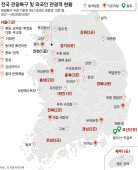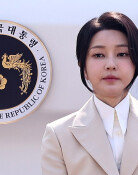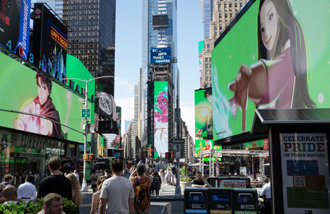Mysteries of Korean education
Korean people are well-known for their zeal in education. There is a record of Korean education by naval officer Henri Zuber who had led the French invasion on Ganghwa Island in 1866. He wrote, "On Ganghwa Island, even poor families had books piled up in their homes, which we felt ashamed of."
The illiteracy data tallied immediately after the nation`s liberation in 1945 sparks question, however. The illiteracy data was 77.8 percent back then. It is hard to believe that so many people were illiterate in a country famous for its education fever. The data could have been exaggerated. Yet, the massive movements to reduce illiteracy after liberation and the enactment of Hangeul Proclamation Day as national holiday still show how serious illiteracy was at the time.
What is the reason for such contradictory phenomenon of education fever and high illiteracy? Since the Joseon Dynasty, the so-called "yangban," or noble class, had high education zeal while others were ignorant. Elementary school entrance rate surged to 95.2 percent in 1958, from 53.4 percent in 1946, thanks to the mandatory education system. Illiteracy rate plunged to 8.9 percent in 1966 and to 7 percent in 1970, which was quite a brisk pace. In this sense, the perception that Koreans` fever for education is deep-rooted is only half true.
There is another widely accepted common sense in Korea. Students struggle at school and private institutes all day long to return home late at night. President Park Geun-hye stressed "happy education" as a presidential candidate who acknowledged the real-life situation. Some education groups raise concerns of students fallen into desperate situation and schools mired in competition. Korean teenagers have been deemed as the most unhappy and distressed in the world.
Recent data make people wonder, however, if such education fever is worth it. The government operates a website that discloses schools` various information. The outcome of school records of junior high schools in Seoul was recently disclosed, which was shocking. In many schools, more than one-third of students got the lowest E grade from five grades from A to E. E grade is given to students who received score below 60 out of 100.
This figure means how serious a decline in scholastic ability is. In English, 36.9 percent of schools, 52 percent in math and 52.8 percent in science fell into this category. Teachers say low scores were not resulted from difficult exams. The biggest question is that why students are getting such a low score when they are studying so hard. These data just seem to go against the criticism that Korea`s education is mired in competition and priority in score.
Since the Park Geun-hye administration set up its education policy to have students study less, drastic changes are expected in education going forward. Under the new policy, prior learning is banned and school exams have to be taken from text books only. The nationwide scholastic achievement assessment for elementary students has been abolished, while one semester will be allowed to take free learning for junior high school students. In short, all students will be requested to study less. The decisions have been made on the premise that our society is forcing too much learning to young people.
Discussions on education often starts from Daechi-dong in southern Seoul, the so-called mecca of education. People talk as if the excess education fever here is a nationwide phenomenon. The government`s education policy is promoted based on opinions from people with high education zeal. Enthusiasm in new administrations tends to take education issues more seriously than what they really are.
The Park administration`s policy to have students study less is a hasty decision considering who will be damaged most. Children of wealthy parents can get costly private education but low-income family`s students will be in a very difficult situation because they have to rely only on school education. Instead of asking low-income students to study less, the government should make plans for them to get a successful career.
President Park`s "education that raises dream and talent" slogan is vague and ambiguous, which might cause schools not to go overboard. If something goes wrong, the basis of the nation can be shaken. The government should, before executing, first look at the overall picture and identify the reality.
Headline News
- N. Korea redefines S. Korea as ‘hostile state’ in revised constitution
- Samsung develops graphic DRAM with industry-leading capacity and speed
- Three questions allegedly leaked via text message during Yonsei Univ. essay test
- China to inject 340 trillion won in loans to support real estate sector
- Dodgers beat Mets to take 2-1 lead in NLCS







